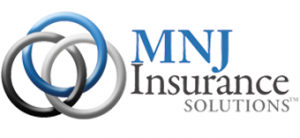Grandfathered Plan Overview
The grandfathered plan was created on March 23, 2010, with few changes implemented since then. Plans with grandfathered status are exempt from some Affordable Care Act (ACA) regulations, but if that status is lost, the plan must adhere to more ACA criteria. An attempt by employers to scale back the benefits of plans or raise participant expenses will result in the loss of grandfathered status. So, it is essential to note that employers are limited in what changes they can make to grandfathered plans’ benefits and costs. It is also important to note that an employer can decide it makes sense to give up the plan’s grandfathered status and adhere to the new ACA standards to make more significant changes to its health plan.
Grandfathered Health Plans are exempt from the following ACA requirements:
Coverage of Preventive Health Services
For plan years beginning on or after September 23, 2010, certain preventive health care must be covered by company health plans and group or individual health insurance policies without requiring cost-sharing requirements. In addition, for years beginning on or after August 1, 2012, preventative health treatments for women must be offered without cost-sharing.
Patient Protections (for plan years beginning before January 1, 2022)
The ACA requires the following patient protections that are effective for plan years beginning on or after September 23, 2010:
- Any primary care physician, including a pediatrician for children, who are available and participates in the plan or network must be available to enrollees.
- Emergency services provided by group health plans and group or individual health insurance policies are not subject to increased cost-sharing or pre-authorization restrictions.
- For OB/GYN care, corporate health plans and individual or group health insurance policies may not demand preauthorization or referral.
*For plan years beginning on or after January 1, 2022, the No surprise act (NSA) has expanded the ACA’s patient protection, which applies to protections for patients under health plans with grandfathered status.*
Nondiscrimination Rules for Fully Insured Plans
Once regulations are issued, fully insured plans must comply with section 105(h)(2) of the Internal Revenue Code. According to that clause, a plan and the benefits provided in the plan may not favor highly compensated people when determining who is eligible to participate.
Quality of Care Reporting
Reporting requirements will be implemented for group health plans and health insurance providers who provide group or individual health insurance coverage. The reports will deal with benefit and payment plans that are intended to enhance patient safety, lower medical errors, avoid readmissions to the hospital, and implement wellness programs.
Improved Appeals Process
For plan years starting on or after September 23, 2010, group health plans and health insurance providers that provide group or individual health insurance coverage must strengthen their internal appeals procedures and adhere to minimum standards for external reviews.
Insurance Premium Restrictions.
Premiums for health insurance coverage in the individual or small group market may not be discriminatory. They may differ solely by individual or family coverage, rating region, age, and tobacco use for plan years beginning on or after January 1, 2014.
Guaranteed Issue and Renewal of Coverage
For plan years starting on or after January 1, 2014, health insurance issuers that provide health insurance coverage in a state’s individual or group market must accept every employer and person who applies for coverage in the state. They also must renew or continue the coverage at the individual’s or plan sponsor’s discretion.
Nondiscrimination in Health Care
Group health plans and health insurance providers that provide group or individual insurance coverage may not discriminate against any provider practicing within their scope of practice as of January 1, 2014, or for plan years beginning on or after that date. This clause, however, does not mandate that a plan only work with agreeable providers or forbid tiered networks. In addition, plans and issuers are prohibited from treating people differently based on whether they accept subsidies or assist an inquiry under the Fair Labor Standards Act.
Comprehensive Health Insurance Coverage
For plan years beginning on or after January 1, 2014, health insurance issues that offer group or individual health insurance coverage need to provide the minimum set of benefits demanded of policies sold through health insurance exchanges.
Limits on Cost-Sharing.
For their coverage of essential health benefits, plan years starting on or after January 1, 2014, must employ a cost-sharing limit (total yearly limit) for solo and family coverage.
Coverage for Clinical Trials
For plan years beginning on or after January 1, 2014, group health plans and health insurance providers providing group or individual insurance coverage must allow certain enrollees to participate in specific clinical trials, with the recurring costs covered for participation. In addition, discrimination against the enrollees for the trial is prohibited.
Key Considerations for Employers
At each renewal, employers will need to decide whether to renew with their current Grandfathered plans or make changes to ACA plans. It is important to know that once an employer no longer offers a Grandfathered plan or moves to a new carrier, the employer can no longer go back to the Grandfathered status. It is important to weigh all of your options, the pros and cons, at your renewal period.
If you are an employer, who still has Grandfathered plans, and are interested in a second opinion or evaluation of your benefits, please contact MNJ Insurance Solutions at (714) 716-4303 ext. 102 or sales@mnjinsurance.com.
This Grandfathered Plan Overview is provided for informational purposes only and should not be construed as legal or a recommendation of any kind. While we have attempted to provide current, accurate, and clearly expressed information, this information is provided “as is,” and MNJ Insurance Solutions makes no representations or warranties regarding its accuracy and completeness.
*source:https://content.zywave.com/file/4180adb7-d393-4c8f-9210-f99b31832eb8/Health%20Care%20Reform%3A%20What%20Are%20the%20Benefits%20of%20Having%20a%20Grandfathered%20Plan%3F%20.pdf *

